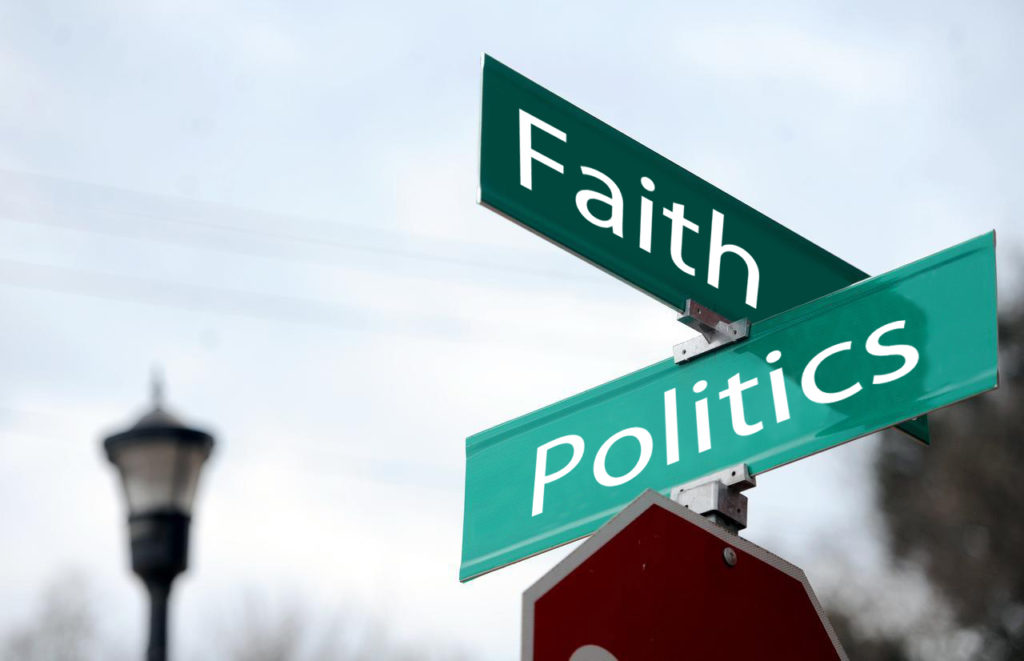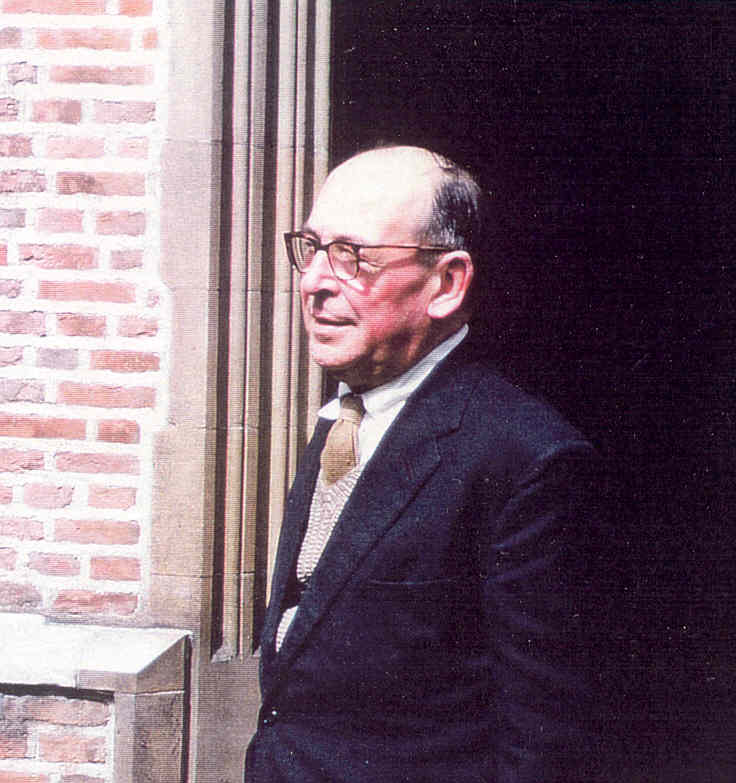C. S. Lewis was not a person who enjoyed political arguments. That distaste went back to his home life in Belfast as his father and guests to the home would enter into such arguments. But that doesn’t mean he didn’t think about good governance and the Christian’s role in that governance. His most direct and detailed commentary on how Christians should approach politics is found in an essay he wrote for the Anglican newspaper, The Guardian, in 1941: “Meditation on the Third Commandment.”
“From many letters to The Guardian, and from much that is promoted elsewhere, we learn of the growing desire for a Christian ‘party,’ a Christian ‘front,’ or a Christian ‘platform’ in politics,” he writes. While Lewis is sympathetic to the desire for Christian faith to make an impact on politics, he immediately turns to “certain difficulties” in attempting to do what those earnest letter writers seek.
The primary problem lay within the Christian world itself. While it might be nice and comforting to say that since we all are Christians, we should all agree with the aims and methods for achieving those aims, it simply isn’t true. Lewis then describes three types of Christians who come at politics from entirely separate philosophies. All, he notes, will consider themselves devout Christians as they promote their distinct approaches.
First, we have the person who “is convinced that temporal welfare can flow only from a Christian life, and that a Christian life can be promoted in the community only by an authoritarian State which has swept away the last vestiges of the hated ‘Liberal’ infection.” This type of Christian, Lewis warns, is close to fascism, which is “not so much an evil as a good thing perverted” and who “regards democracy as a monster whose victory would be a defeat for Christianity.” In other words, it is the government’s job to impose Christianity upon everyone. Such a person will work with those outside the faith who also believe in the authoritarian State, hoping they can be the “leaven” in the midst of this fascism.
Then we have an equally devout Christian “deeply conscious of the Fall and therefore convinced that no human creature can be trusted with more than the minimum power over his fellows.” This person wants to ensure that the State never infringes on Christian freedom and sees democracy as the medium to maintain that freedom. This person “is tempted to accept aid from champions of the status quo whose commercial or imperial motives bear hardly even a veneer of theism.”
The third type of Christian is the one who is so exercised over the inequities of wealth in society, and is so convinced that the church has succumbed to the world and has betrayed what Jesus originally taught, that he “demands of us a Left revolution. And he also is tempted to accept help from unbelievers who profess themselves quite openly to be the enemies of God.”
As an American Christian not writing within Lewis’s British context during WWII, I nevertheless see the same types of Christians active today in our politics. Within modern conservatism, there is now a group of Christians advocating a more forceful state that will tell citizens what is right and good and make sure they follow it. A second group looks upon the guarantees of religious freedom found in the Constitution and wants to make sure that church and state stay in their own realms of influence and authority. And there are always those who call for a more radical transformation of society in their demands for social justice.
Lewis, in his essay, speculates what might happen if the three types tried to set up a formal Christian Party. He predicts, first of all, “that either a deadlock ensues (and there the history of the Christian Party ends) or else one of the three succeeds in floating a party and driving the other two, with their followers, out of its ranks.” What remains will be a party with “a minority of the Christians who are themselves a minority of the citizens.” Such a party will accomplish little or nothing.
Whatever it calls itself, it will represent, not Christendom, but a part of Christendom. The principle which divides it from its brethren and unites it to its political allies will not be theological. It will have no authority to speak for Christianity; it will have no more power than the political skill of its members gives it to control the behaviour of its unbelieving allies.
But there will be a real, and most disastrous, novelty. It will be not simply a part of Christendom, but a part claiming to be the whole. By the mere act of calling itself the Christian Party it implicitly accuses all Christians who do not join it of apostasy and betrayal.
It will be exposed, in an aggravated degree, to that temptation which the Devil spares none of us at any time—the temptation of claiming for our favourite opinions that kind and degree of certainty and authority which really belongs only to our Faith.
Lewis continues by doubling down on the extent of the disaster that will follow. He becomes quite specific when he says, “The demon inherent in every party is at all times ready enough to disguise himself as the Holy Ghost.” When we attribute to any party or leader of a party the mantle of God’s special favor, it is all too easy to follow that party—shall we say “tribe” as well—into whatever action it leads us. We will justify its actions because we consider it to be God’s party. Lewis warns, “If ever Christian men can be brought to think treachery and murder the lawful means of establishing the regime they desire, and faked trials, religious persecution and organized hooliganism the lawful means of maintaining it, it will, surely, be by just such a process as this.”
In his final paragraph, Lewis encourages instead that Christians transcend parties and become a voice that applies the right kind of pressure on all parties equally. If they want our votes, they need to carefully consider what is most important to us. He asks, “So all it comes down to is pestering” our representatives? “Yes: just that. I think such pestering combines the dove and the serpent. I think it means a world where parties have to take care not to alienate Christians, instead of a world where Christians have to be ‘loyal’ to infidel parties.”
Even if Christians are a minority, Lewis maintains, we can have a substantial influence. He ends, though, with this thought: “But I had forgotten. There is a third way—by becoming a majority. He who converts his neighbour has performed the most practical Christian-political act of all.”
My final thought: If we are to convert our neighbors, what is it that will get their attention and encourage them to listen to us? Will it be our strident and arrogant speech? Will it be our shrill outcries of frustration and anger? Will they come around to our views when we physically attack them or try to overthrow the government? Or will it be the testimony of our lives as those who seek to reach out and show the love of Christ to those with whom we disagree?
I choose that last option.



